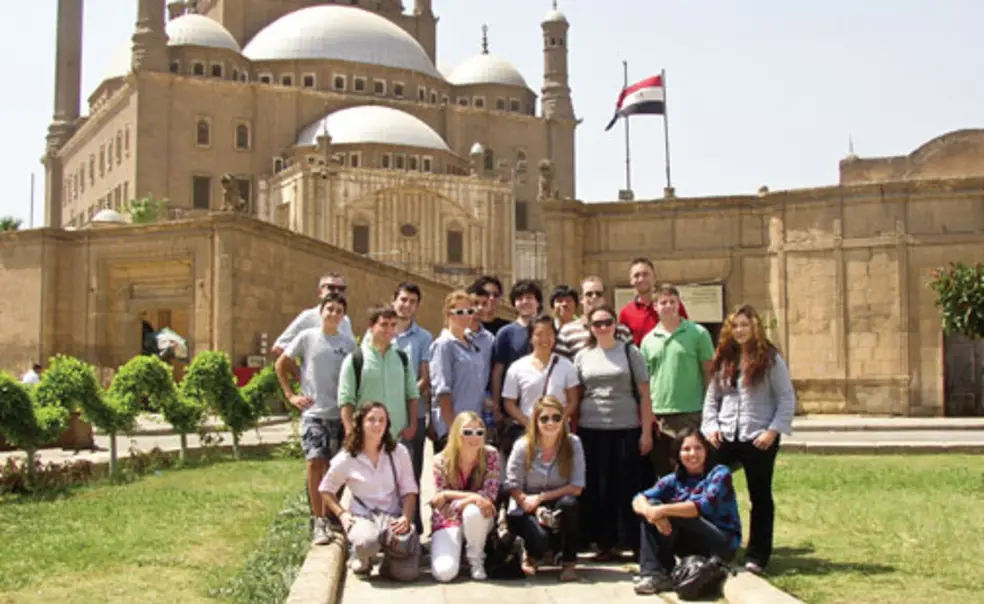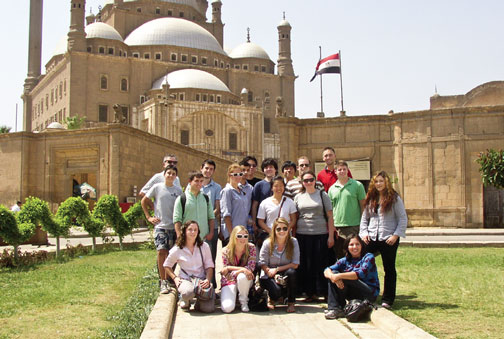If I were a student at Princeton, there is nothing I would rather do in the summer of my freshman or sophomore year than enroll in a Global Seminar. These once-in-a-lifetime opportunities lie at the heart of our commitment to give every undergraduate a chance to weave an international experience into his or her education. In a rapidly shrinking world, Princeton’s goal is to “produce globally competent citizens” who have the substantive knowledge, cultural sensitivity, linguistic skills, and practical savoir faire to thrive in societies that differ from their own. And while there are many ways of developing these strengths, Global Seminars are designed to do so in an exceptionally holistic fashion.
Sponsored and subsidized by the Princeton Institute for International and Regional Studies (PIIRS), these six-week, credit-bearing summer courses enable members of our faculty and small groups of freshmen and sophomores to explore a topic of mutual interest in situ, be it Irish theater in Ireland, Indian art and architecture in India, or Zen Buddhism in Japan. Princeton’s first Global Seminar in the summer of 2007 was conceived by former diplomat and PIIRS Advisory Council member Desaix Anderson ’58, whose 35-year Foreign Service career culminated in the re-opening of the American embassy in Vietnam in 1995. Under his deft direction, 14 students traveled to Hanoi to study the “origins, implications, and consequences” of the Vietnam War and, more broadly, America’s place in the world today.
As with later seminars, Desaix’s was designed to introduce participants to points of view unlikely to be heard as fully, if at all, at Princeton. Accordingly, half the daily lectures were given by resident scholars and other representatives of Vietnamese society, ranging from a former general to a prominent writer. This seminar also established a pattern for subsequent offerings by including a handful of local students in its activities, thus creating opportunities for cross-cultural exchanges, and by incorporating small-scale public service projects. In Vietnam, our students helped schoolchildren improve their English-language skills, widened a rural road, and scraped and painted a building serving those adversely affected by the use of Agent Orange in the Vietnam War. When to these activities are added daily language instruction, field trips to other communities and sites of national significance, and the knowledge one accrues from simply living in a different country, we have an educational adventure that is at once immersive, intensive, and transformative. As one participant put it, “I think that this course profoundly affected both my personal and academic development, and I am so glad to have taken it.”
These sentiments have been echoed by students and faculty alike as seminars have multiplied, spreading outward from Vietnam to encompass 16 countries on four continents — from Germany to Brazil; from Ghana to China. To date, more than 300 Princetonians have taken a Global Seminar, enriching their summers without impinging on their time on campus — a concern that, in the past, has deterred some members of our student body from studying abroad. And in a couple of months, 75 additional students will probe a host of fascinating questions in the places that gave rise to them.
Some will accompany Assistant Professor of Spanish and Portuguese Languages and Cultures Bruno Carvalho to Rio de Janeiro, where they will examine different representations of this celebrated city and competing visions for its future at the intersection of disparate cultural and modernizing forces. Another group, led by Michael Cadden and Timothy Vasen, who head the Lewis Center for the Arts and our Program in Theater, respectively, will travel to Athens to study, observe, and perform the plays of Aeschylus, Sophocles, Euripides, and Aristophanes. Students are promised “a total immersion in the vibrant, chaotic, contradictory, very old and very new world of Greek theater,” something that not even the most creative Princeton-based course could replicate.
Still another seminar, taught by Professor of East Asian Studies David Leheny, will examine the challenges confronting Japan in the wake of last year’s devastating earthquake and tsunami, as well as the effect of this disaster on Japanese self-understanding in the context of the country’s postwar narrative. And a continent away, Professor Şükrü Hanioğlu, who chairs our Department of Near Eastern Studies, and Senior Lecturer in Turkish Erika Gilson will join forces to introduce our students to 16 centuries of Byzantine and Ottoman history in Istanbul, noting that, ultimately, the city “itself becomes the classroom.”
Finally, Professor of History Jan Gross will hold a seminar in Kraków that explores the life of Poland’s Jews before, during, and after the Holocaust. Students will live in the city’s old Jewish quarter and, among other field trips, visit the Auschwitz concentration camp, which played its own terrible part in the destruction of Poland’s Jewish population, formerly the second largest in the world.
It is not surprising that three times as many students apply to participate in a Global Seminar as can be accommodated, and we are therefore seeking to endow and expand this program. I look forward to the day when there is room for all in what Dean of the College Valerie Smith has rightly called “one of the highlights of the Princeton undergraduate experience.”














No responses yet